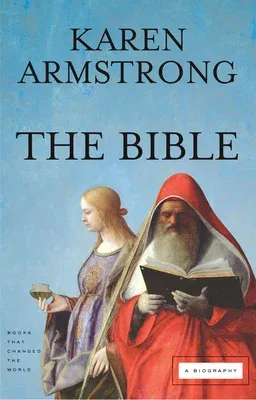Karen Armstrong
(Author)The Bible: A BiographyPaperback, 1 November 2008

Qty
1
Turbo
Ships in 2 - 3 days
Only 1 left
Free Delivery
Cash on Delivery
15 Days
Free Returns
Secure Checkout

Part of Series
Books That Changed the World
Print Length
176 pages
Language
English
Publisher
Grove Press
Date Published
1 Nov 2008
ISBN-10
0802143849
ISBN-13
9780802143846
Description
Product Details
Author:
Book Format:
Paperback
Country of Origin:
US
Date Published:
1 November 2008
Dimensions:
19.46 x
12.85 x
2.16 cm
ISBN-10:
0802143849
ISBN-13:
9780802143846
Language:
English
Location:
New York, NY
Pages:
176
Publisher:
Series:
Weight:
244.94 gm